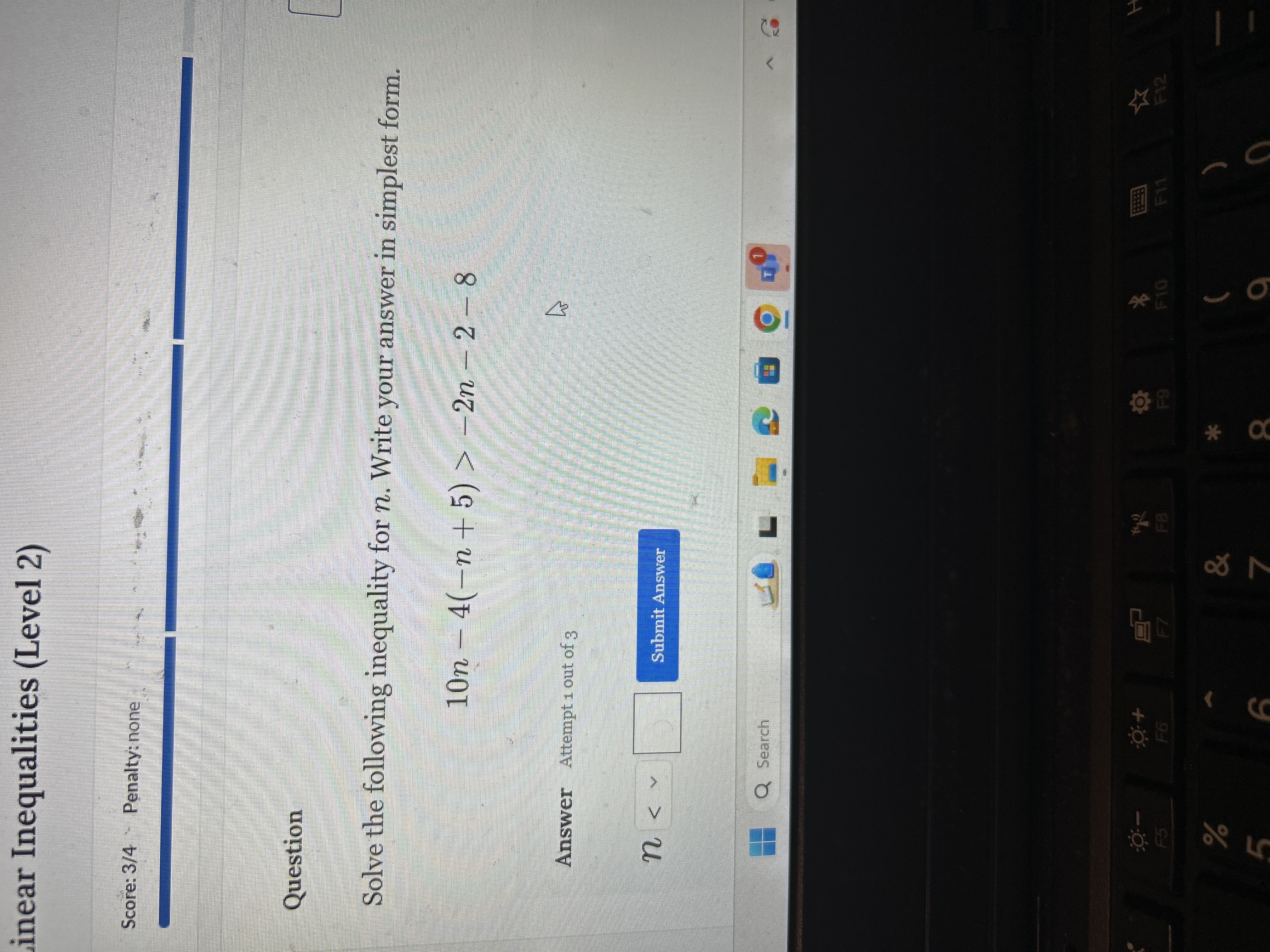Solve the following inequality for n. Write your answer in simplest form. 10n - 4(-n + 5) > -2n - 2 - 8

Understand the Problem
The question is asking to solve the inequality for the variable n and to write the solution in its simplest form. This involves performing algebraic manipulations to isolate n and determine the range of its possible values based on the given inequality.
Answer
$$ n > \frac{5}{8} $$
Answer for screen readers
The solution to the inequality is: $$ n > \frac{5}{8} $$
Steps to Solve
-
Expand the expression on the left side First, we expand $-4(-n + 5)$: $$ -4(-n + 5) = 4n - 20 $$ So the complete left side becomes: $$ 10n + 4n - 20 $$
-
Combine like terms Next, we combine the terms on the left side: $$ 10n + 4n - 20 > -2n - 2 - 8 $$ This simplifies to: $$ 14n - 20 > -2n - 10 $$
-
Move all n terms to one side Now, we add $2n$ to both sides: $$ 14n + 2n - 20 > -10 $$ This gives: $$ 16n - 20 > -10 $$
-
Isolate the variable n Next, add 20 to both sides: $$ 16n > 10 $$
-
Solve for n Finally, divide both sides by 16: $$ n > \frac{10}{16} $$ Simplifying $\frac{10}{16}$ results in: $$ n > \frac{5}{8} $$
The solution to the inequality is: $$ n > \frac{5}{8} $$
More Information
The solution indicates that the variable ( n ) must be greater than ( \frac{5}{8} ). This means any value of ( n ) that exceeds ( \frac{5}{8} ) will satisfy the original inequality.
Tips
- Forgetting to distribute the negative sign correctly when expanding the expression.
- Not properly combining like terms, leading to incorrect coefficients.
- Failing to write the final answer in simplest form.
AI-generated content may contain errors. Please verify critical information